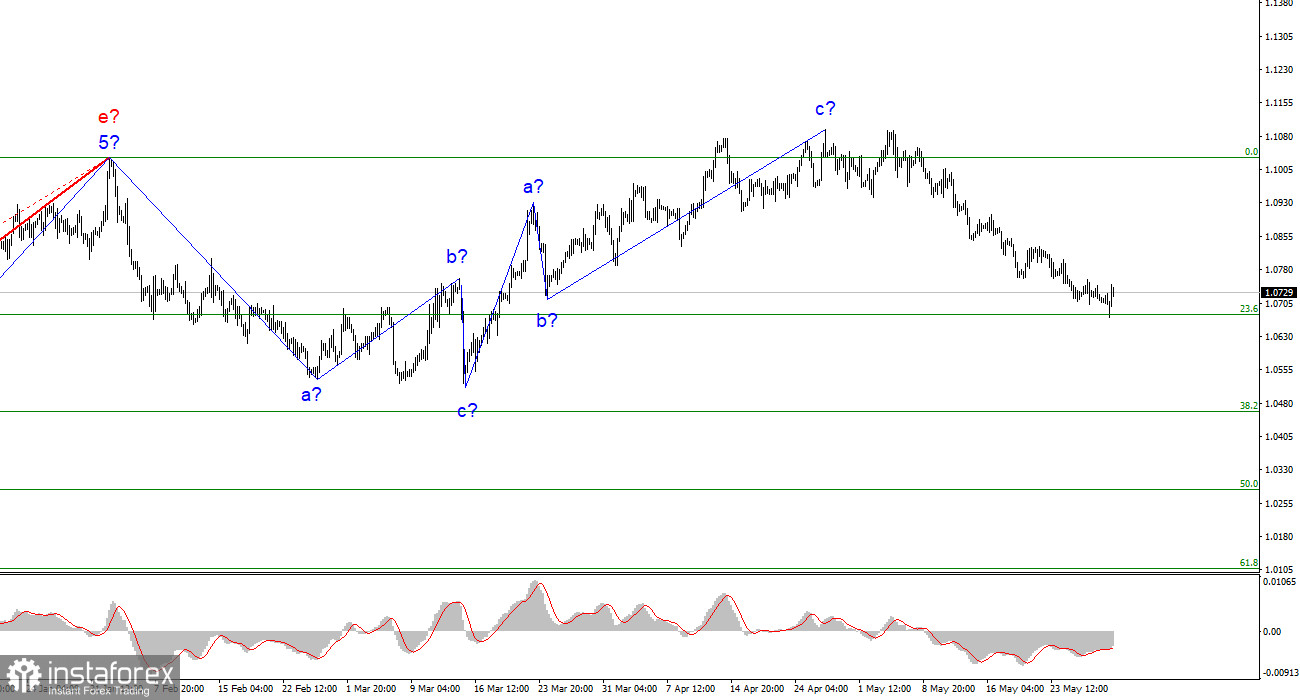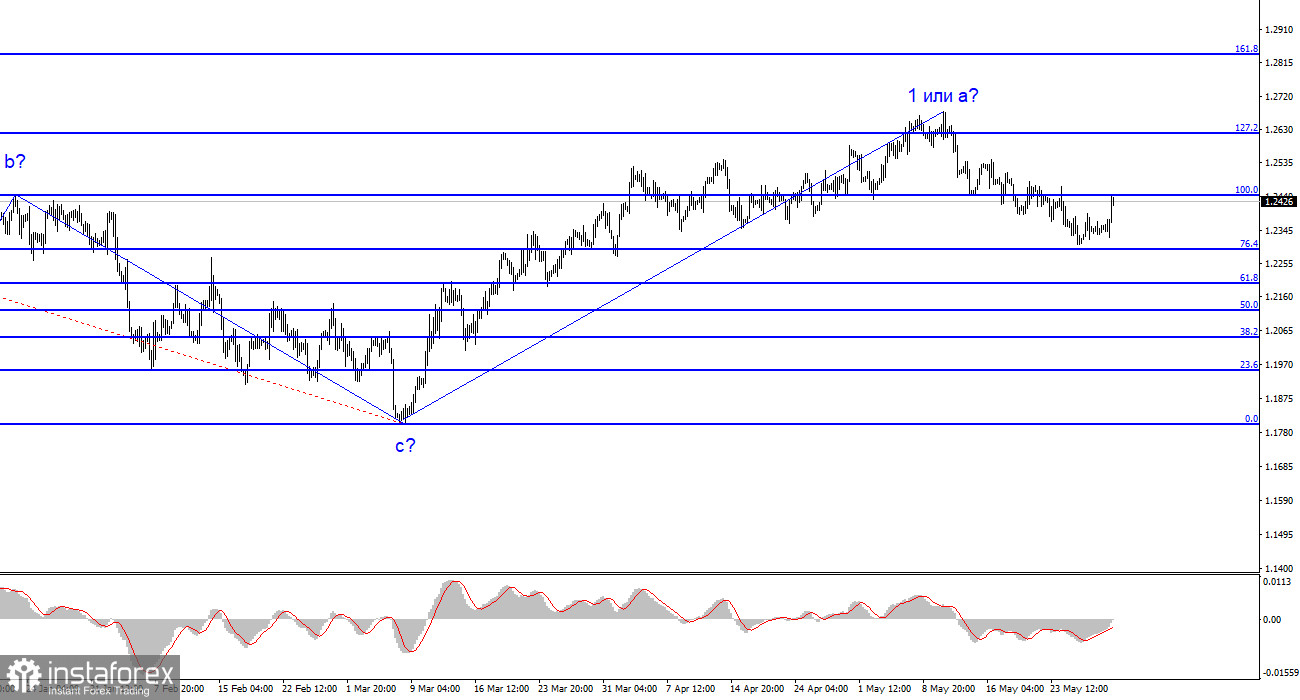On Tuesday, the demand for the pound was significantly higher than that for the euro. As soon as this happened, many analysts began to pay attention to the report on prices in UK stores, as shop price inflation accelerated to 9% this month. This indicates that UK inflation is decreasing slowly or not decreasing at all, despite the benchmark interest rate being raised to 4.5%. The consensus forecast for the Bank of England's rate currently suggests two more quarter point rate hikes in June and August. This would bring the rate to 5%. Any further tightening without alternatives would push the British economy into a recession, and even the current rate could potentially cause it, despite the BoE's optimistic forecasts. But how can inflation be combated if it hardly responds to the actions of the central bank?

I believe there can only be one disheartening answer: it cannot. If further rate hikes lead to a recession, the Brits, clearly dissatisfied with recent events within the country, may start a new wave of mass strikes. Take note that in the past year, many Brits have openly criticized the British government for the sharp decline in real incomes and high inflation. If the rate increases further, the economy will contract, leading to an increase in unemployment. If the rate is kept as it is, it might take years for inflation to return to the target level. The BoE is in a deadlock.
BoE Governor Andrew Bailey expects inflation to start decreasing rapidly from April. He noted the decline in energy prices, which will somewhat dampen inflationary pressure on all categories of goods and services. However, the April inflation report was unusually contradictory. While headline inflation showed a significant slowdown, core inflation continues to rise. Therefore, it is not possible to conclude that inflation is slowing down in the general sense.
We can only wait and observe. If Bailey turns out to be right, then the BoE will not need to raise the rate to 5.5% or 6%, which currently seems like a fantasy. However, if inflation continues to hover around 10%, the BoE will need to devise new measures to address it without exerting serious pressure on the economy. It might require patience for several years. It is entirely unclear which option the central bank will choose.
The demand for the British pound may increase as market expectations of a hawkish stance grow. But will these expectations be justified? The pound may rise based on this, but fall even harder when it becomes clear that the BoE is not ready to raise the rate above 5%. I believe that wave analysis should be the primary tool for forecasting at the moment.

Based on the analysis conducted, I conclude that the uptrend phase has ended. Therefore, I would recommend selling at this point, as the instrument has enough room to fall. I believe that targets around 1.0500-1.0600 are quite realistic. A corrective wave may start from the 1.0678 level, so you can consider short positions if the pair surpasses this level.
The wave pattern of the GBP/USD pair has long indicated the formation of a new downtrend wave. Wave b could be very deep, as all waves have recently been equal. A successful attempt to break through 1.2445, which equates to 100.0% Fibonacci, indicates that the market is ready to sell. I recommend selling the pound with targets around 23 and 22 figures. But most likely, the decline will be stronger.
 English
English 
 Русский
Русский Bahasa Indonesia
Bahasa Indonesia Bahasa Malay
Bahasa Malay ไทย
ไทย Español
Español Deutsch
Deutsch Български
Български Français
Français Tiếng Việt
Tiếng Việt 中文
中文 বাংলা
বাংলা हिन्दी
हिन्दी Čeština
Čeština Українська
Українська Română
Română

